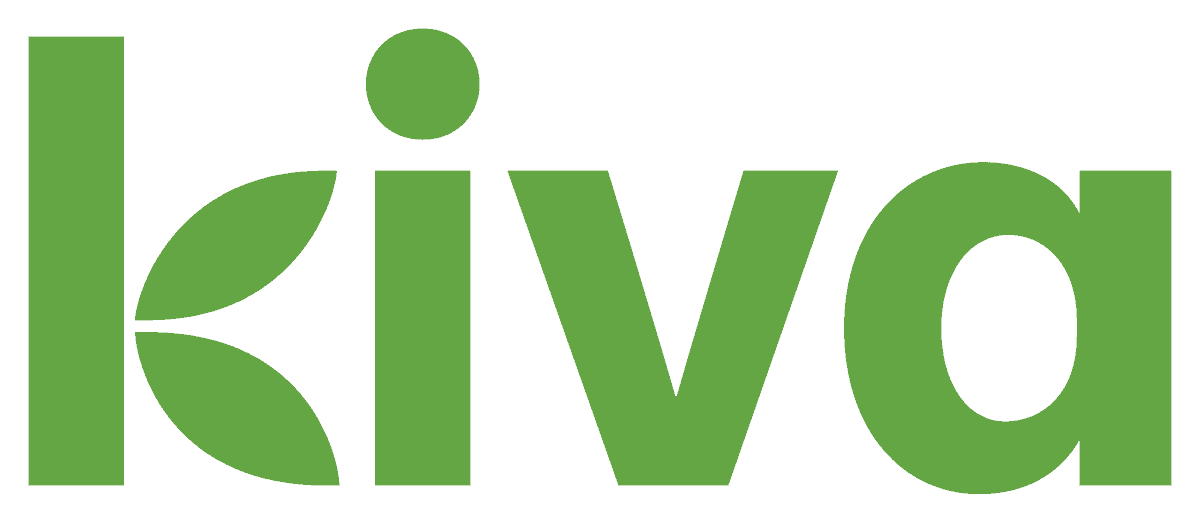A small business loan is an easy way to increase your business capital. But with so many loan options on the market, how do you choose what’s best for your business?
Start your search with these top lenders. Whether you’re purchasing new equipment, expanding your business, or funding an emergency expense, there’s an option out there that’s right for you. Keep reading to learn more about our picks for the best small business loans of 2022.
Small Business Loans For 2022
These are the best small business loans for 2022, including flexible lines of credit, low-interest loan options, and loans that give you access to fast funding. No matter what you need funding for, check out these great options from lenders, including OnDeck, Lendio, BlueVine, SmartBiz, and more.
1. OnDeck
Best for fast funding.
 |
| Small Business Loans |
Multiple types of financing are available
The application process is quick and easy
Funds are disbursed quickly
Cons
Rates can be expensive
Not available to businesses in some industries
OnDeck offers two financing solutions to help small business owners get a handle on operating costs: short-term loans and lines of credit. The application process is fast and easy, and once you accept your loan, you can receive funds as quickly as the same business day.
OnDeck doesn’t charge interest on its term loans. Instead, your repayment amount is a fixed rate. That means your repayment amount only gets calculated once. Borrowing amounts of up to $250,000 are available to qualified borrowers. OnDeck also offers revolving lines of credit of up to $100,000 and term lengths of 12 months. Unlike OnDeck’s term loans, the company’s lines of credit do accrue interest, so you can save money by repaying the money early. There is no penalty for early repayment.
2. Lendio
Best loan marketplace. |
| Small Business Loans |
Pros
Multiple types of financing are available
High borrowing amounts
Low credit score requirements (for some products)
Cons
The application process can be slow
Funds can take a while to disburse
Rates can be expensive
Lendio is a loan marketplace that helps connect you to the best loan for your business. With one application, you can receive loan offers from 75+ loan originators in Lendio’s network within 72 hours. Then, you can compare the loan offers you prequalify for and select the one that best fits your business circumstances. What’s more, Lendio’s business loan marketplace is completely free to use.
Lendio offers a variety of loan options, including business lines of credit, SBA loans, short-term loans, business term loans, merchant cash advances, and equipment financing. Furthermore, Lendio’s extensive lender network includes some lenders that are willing to work with would-be borrowers who have less-than-stellar credit (Lendio recommends a credit score of at least 550 for applicants).
3. Fundera
Best for equipment financing. |
| Small Business Loans |
Multiple types of financing are available
Long-term financing options available
The application process is fast and easy
Cons
Rates can be expensive
Some additional fees are charged
Fundera isn’t a direct lender but instead offers a loan matchmaking service. Simply input your information, and Fundera helps you find and compare lender offers. Fundera places value on quality lenders, so you don’t have to worry about being paired with a shady lender. Fundera also has excellent customer service, a variety of financing products, and even options for new businesses or credit-challenged borrowers.
If you need equipment, Fundera’s lending partners offer equipment financing. You can receive up to 100% of the price of your equipment with repayment terms of five to six years. Interest rates generally range from 4% to 40%. In addition to equipment financing, you can receive other funding through Fundera, including term loans, invoice financing, SBA loans, merchant cash advances, startup loans, and more.
4. SmartBiz
Best for SBA loans. |
| Small Business Loans |
Pros
High borrowing amounts
Rates tend to be inexpensive
Long-term financing options available
Cons
Borrower qualifications might be hard to meet
Funds can take a while to disburse
SmartBiz doesn’t originate loans. Instead, it works with a network of bank lenders that provide SBA loans. SmartBiz requires two years in business to qualify, so this option isn’t for startups. However, if you meet the requirements and are willing to navigate the lengthy application and funding process, you’ll be rewarded with a low-cost, long-term small business loan.
SmartBiz provides three types of SBA loans: debt refinancing loans, working capital loans, and commercial real estate loans. The working capital and debt refinancing SBA loans offered through SmartBiz offer up to $350,000 with a term length of 10 years and an APR of around 10%. SmartBiz’s commercial real estate loans are offered for up to $5 million with term lengths of 25 years.
5. BlueVine
Best for invoice factoring. |
| Small Business Loans |
Pros
Low credit score requirements
No long term contract required
Funds are disbursed quickly
Cons
Rates can be expensive
Repayments are required quickly
Through a partnership with FundThrough, BlueVine offers invoice factoring and financing, so you can use your unpaid invoices to boost cash flow. You can receive up to $10 million through invoice factoring or up to $15,000 through invoice financing. Just connect your accounting software and business bank account to qualify — even if you have a less-than-perfect credit history.
And if you don’t have unpaid invoices? BlueVine can still provide the funding you need through its lines of credit. You may qualify for as much as $250,000 with interest rates starting at 4.8%. And it’s easy to qualify, as BlueVine requires a 600+ credit score, $10,000+ monthly revenue, and at least six months in business.
6. Fundbox
Best loans for bad credit. |
| Small Business Loans |
Low credit score requirements
Two types of financing are available (term loans and lines of credit)
Funds are disbursed quickly
Cons
Rates can be expensive
No long-term financing options are available
Fundbox is a lender with low borrower requirements, making it an excellent place to seek funding for businesses (or even freelancers) with as little as six months in operation (although, ideally, a full year in business). Fundbox also lends to business owners with credit scores as low as 600. You’ll be hard-pressed to find another business lender with such relaxed requirements.
Fundbox evaluates your bank account activity when you apply for a Fundbox Credit revolving line of credit. You’ll need to have been using a compatible bank account for at least three months before applying. The borrowing fee begins at 4.66%, term lengths are 12 or 24 weeks, borrowing amounts run from $1K to $150K, and there is no prepayment penalty. Fundbox has also launched a term loan program in beta that offers a lump sum payment with longer repayment terms. This product may not be available to all customers.
7. Wells Fargo
Best for low-interest loans. |
| Small Business Loans |
Pros
Multiple types of financing are available
Rates tend to be inexpensive
Long-term financing options available
Cons
Borrower qualifications might be hard to meet
Funds can take a while to disburse
If you decide to seek a loan from a traditional bank, the business loans offered by Wells Fargo merit consideration. The banking giant offers a wide array of financing products for businesses, including lines of credit, SBA loans, invoice factoring, equipment financing, and more. Wells Fargo makes borrowing easier with an online application process.
Wells Fargo’s borrower requirements for business loans are generally pretty steep. Your business must have a two-year record of profitability and at least $1.50 in cash flow for every $1 borrowed. You must also have a personal credit score of at least 640. However, if you do meet the requirements, you’ll find that Wells Fargo’s rates are extremely competitive.
 |
| Small Business Loans |
8. LoanBuilder
Pros
Borrower qualifications are lower than what banks offer
Low credit score requirements
No extra fees
Cons
No available long-term financing options
A blanket lien is required
Small business lender LoanBuilder, which PayPal acquired in 2017, specializes in short-term business loans that carry fixed fees instead of interest. For new businesses just starting, LoanBuilder’s advantage is that the lender only requires nine months of business time. Most business loan vendors require 12 months or more of business history. You’ll also need revenue of $42,000+ a year and a personal credit score of 620 or above.
Borrowing amounts run from $5K to $500K. Term lengths range from 13 to 52 weeks, and the borrowing fee is a one-time fee of 2.9%-18.72% of the borrowing amount.
9. Accion
Best for startups and underserved borrowers. |
| Small Business Loans |
Pros
Borrower qualifications are lower than what banks offer
Financing is available to qualified startups
Monthly repayments
Cons
Rates can be expensive
Some additional fees are charged
Accion is a nonprofit lender that looks beyond just credit scores. Accion is startup-friendly and also provides funding to underserved borrowers, including women, minorities, and immigrants.
Through Accion, you can receive up to $100,000 with rates starting at just 5.99%. In addition to offering funding, Accion can also connect you to small business coaching, educational resources, and support networks to help your business succeed.
10. Kiva U.S.
Best for crowdfunding. |
| Small Business Loans |
Pros
No credit score requirements
Financing is available to startups
No interest rates
Cons
Low borrowing limits
Funds can take a while to disburse
It’s not every day that you find small business loans with 0% interest rates, but that’s exactly what you can get with Kiva U.S. This crowdfunding platform helps small business owners get funded up to $15,000 with 0% interest. Even more surprising is that there are no credit score requirements. Instead, you invite friends and family to lend to you through the platform to prove your creditworthiness.
After the 15-day private funding period, you enter a 30-day public funding period to connect to over 1.6 million lenders. Following this, you can receive funds within five to seven days and have 36 months to repay your loan. Note that to qualify for the maximum loan amount, you’ll need to have a strong online presence and be in business for at least three years. Otherwise, you may only qualify for a smaller loan.
![What is Insurance | Insurance Meaning and Types | Why insurance is important [2021]](https://blogger.googleusercontent.com/img/b/R29vZ2xl/AVvXsEg4o720bpBs1yJH_HoO0NQSuc1WBVkaG1ttedsfJoDGJSm6DbDzsn4aWR25b6KthW3OcO-1JC3NTSbcmV6Aa6VBQrbIrJbIfZmR7nxqa4DsjLXv6eYUxd0CxWd2kPDjd6YeRA9JLbzlvSE/w320-h320-p-k-no-nu/What+is+Insurance++Insurance+Meaning+and+Types++Why+insurance+is+important+%255B2021%255D.jpg)

![[ Hindi] Car Loan - Compare Best Interest Rate Online](https://blogger.googleusercontent.com/img/b/R29vZ2xl/AVvXsEj37scwMuKhNz81RBSSdEqwVHA1X2X3jGSVRhTTuVaXqhulqVwM5K22Yl9MCTT5mOUdirlBAMXim-idCbQ9gA_F8yIKJpuP40EPX2_c4EyTpy4tCOhoJxsYZbQe1BtXuwiaB-DLWVQSsBIH/w320-h320-p-k-no-nu/car+images.png)

